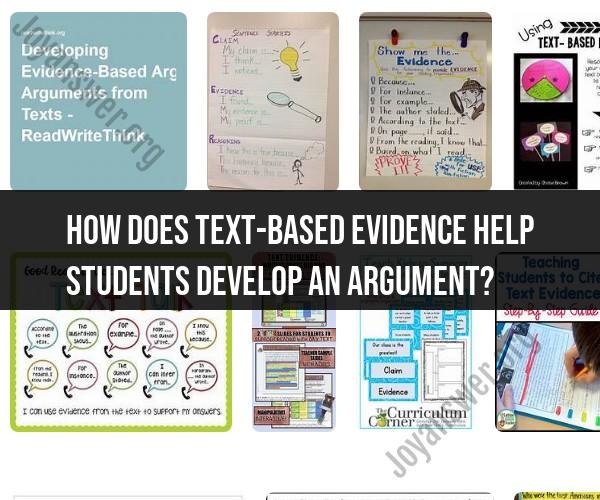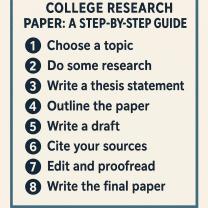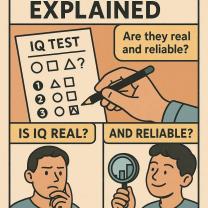How does text-based evidence help students develop an argument?
Text-based evidence plays a crucial role in helping students develop persuasive and well-supported arguments. Here's how text-based evidence contributes to the process of argument development:
Supports Claims: Text-based evidence provides concrete support for the claims or arguments that students make. It helps them move beyond mere opinions and beliefs by grounding their arguments in factual information, data, or expert opinions.
Credibility: Evidence from reputable sources adds credibility to students' arguments. When they can reference authoritative texts, studies, or experts, their arguments are more persuasive and convincing to their audience.
Clarity and Precision: Using text-based evidence forces students to be specific and precise in their arguments. They need to select and quote passages from texts that directly relate to their claims, ensuring that their arguments are well-defined and focused.
Counterarguments: Text-based evidence can also be used to address counterarguments. Students can anticipate opposing viewpoints and use evidence to refute or qualify those viewpoints, strengthening their own arguments in the process.
Analytical Skills: Engaging with text-based evidence requires students to analyze and interpret texts critically. They must assess the relevance of passages, consider the context in which they were written, and evaluate the reliability of the sources.
Integration: Incorporating text-based evidence into their arguments encourages students to integrate source material seamlessly into their writing or speaking. They learn how to quote, paraphrase, or summarize information effectively while maintaining their own voice.
Evidence of Research Skills: Using text-based evidence demonstrates that students have conducted research and have a deep understanding of the topic. It shows that they have engaged with academic or authoritative sources to inform their arguments.
Logical Flow: Well-selected evidence helps create a logical flow in students' arguments. When evidence is presented in a logical order, it guides the reader or listener through the argument, making it easier to follow and understand.
Critical Thinking: Engaging with text-based evidence fosters critical thinking skills. Students must question the validity and relevance of the evidence they choose and make thoughtful decisions about which evidence best supports their claims.
Persuasion: Ultimately, the goal of any argument is to persuade or convince an audience. Text-based evidence is a powerful tool for persuasion because it appeals to reason and logic, making arguments more compelling and convincing.
In summary, text-based evidence is an essential component of argumentation. It helps students build well-supported, logical, and persuasive arguments while honing their research, analytical, and critical thinking skills. Encouraging students to use evidence effectively not only enhances their academic writing and speaking abilities but also equips them with valuable skills for engaging in informed, evidence-based discussions in various contexts.













